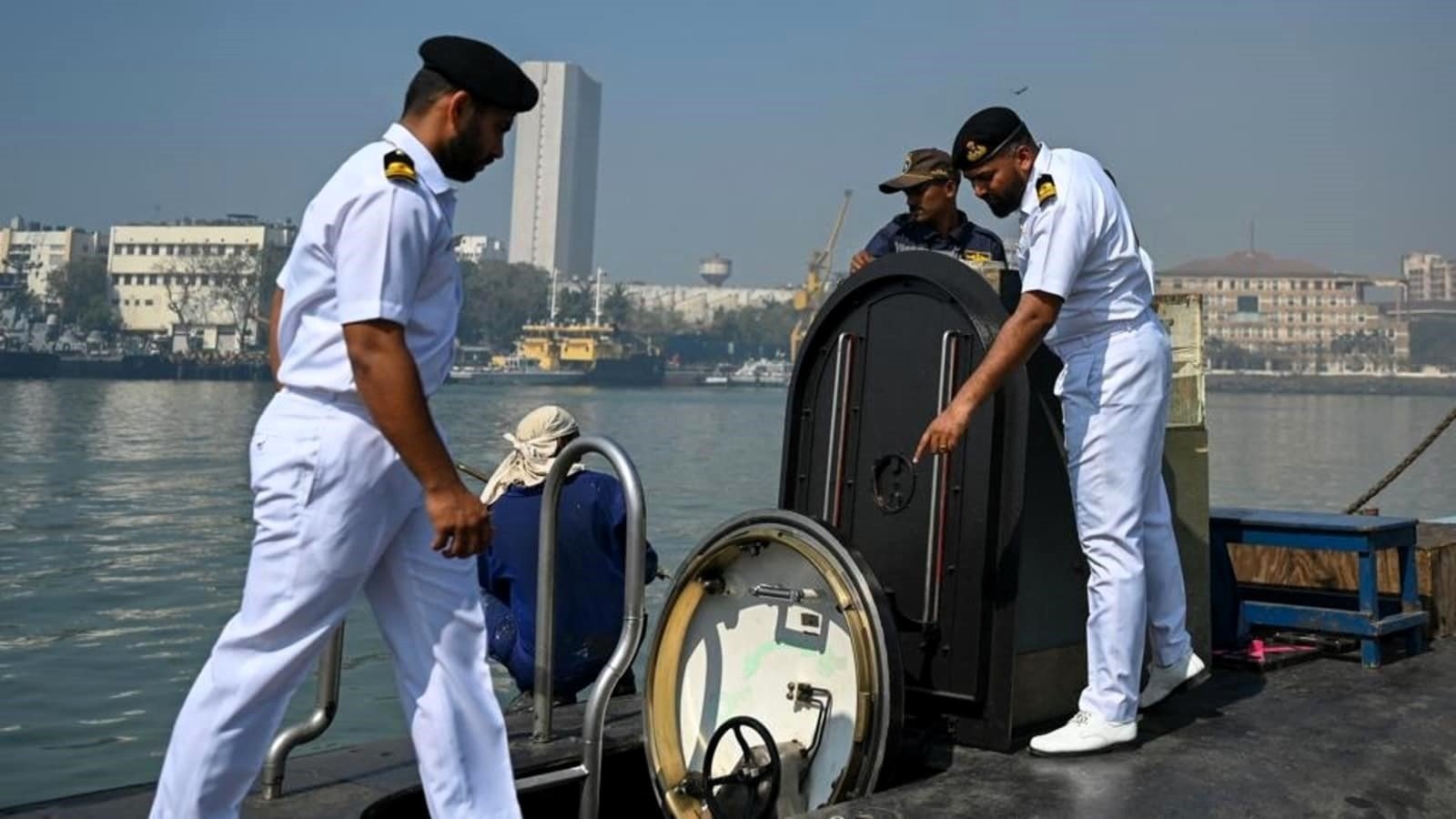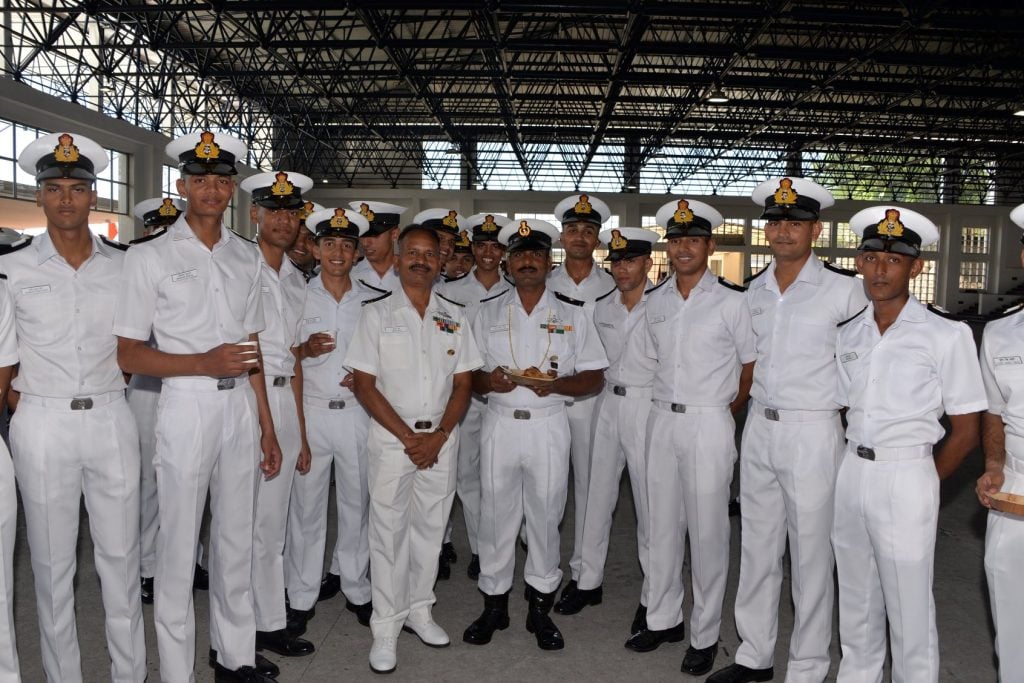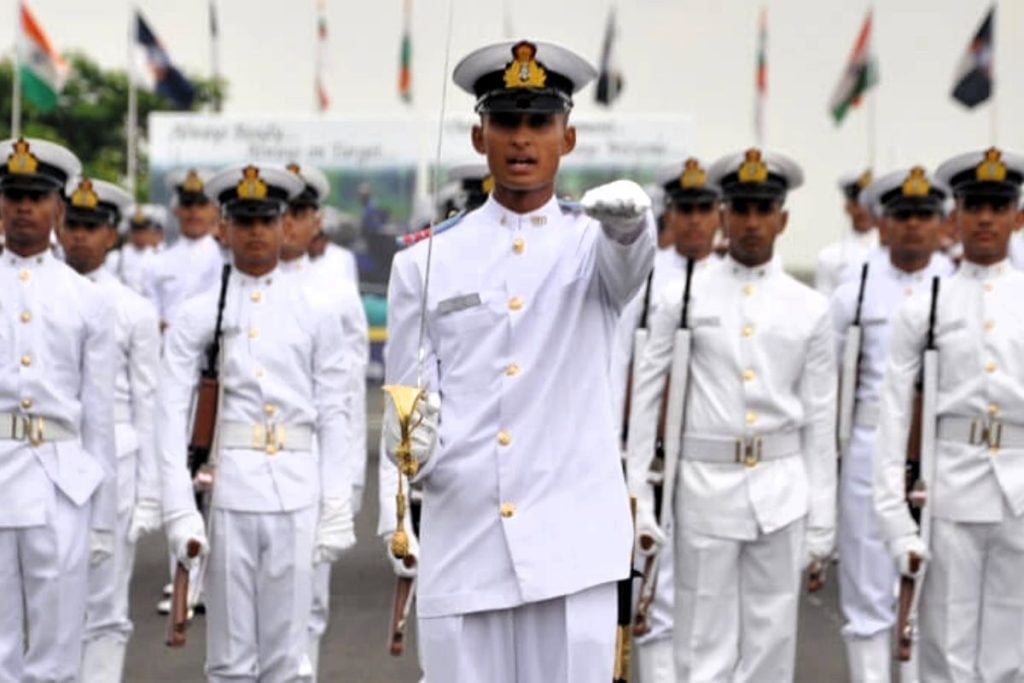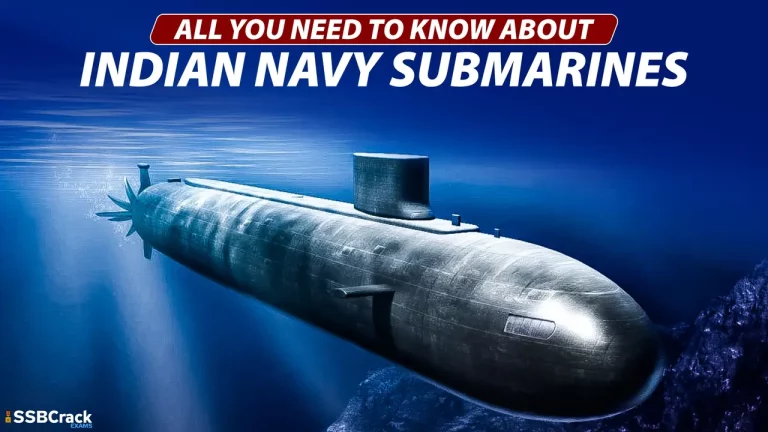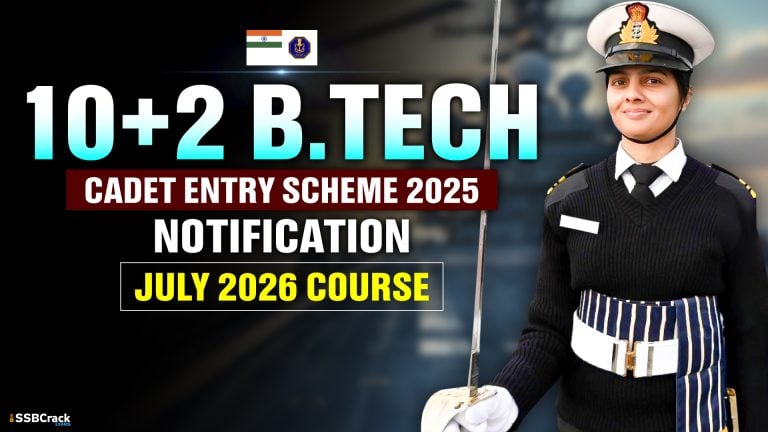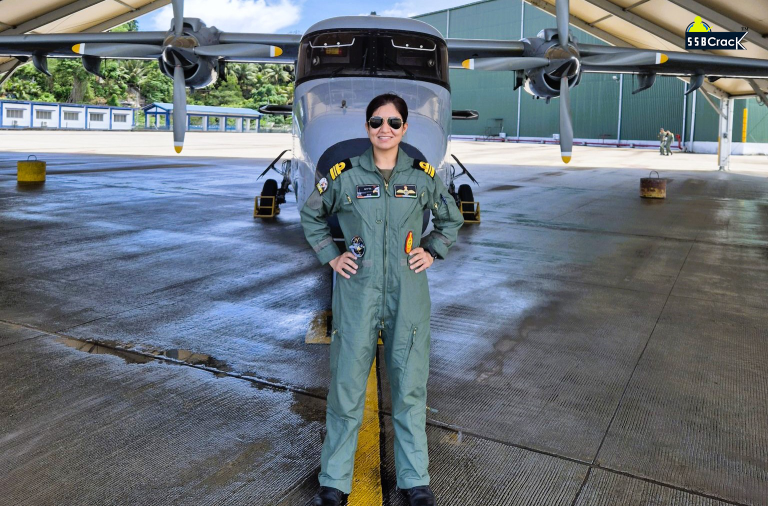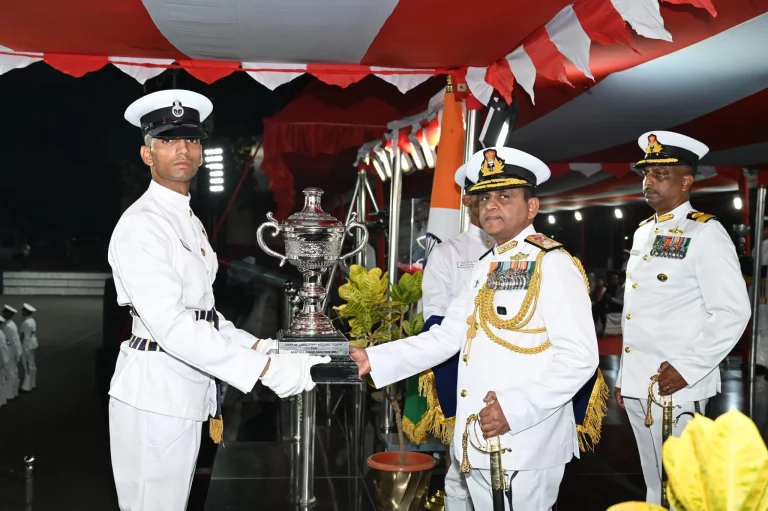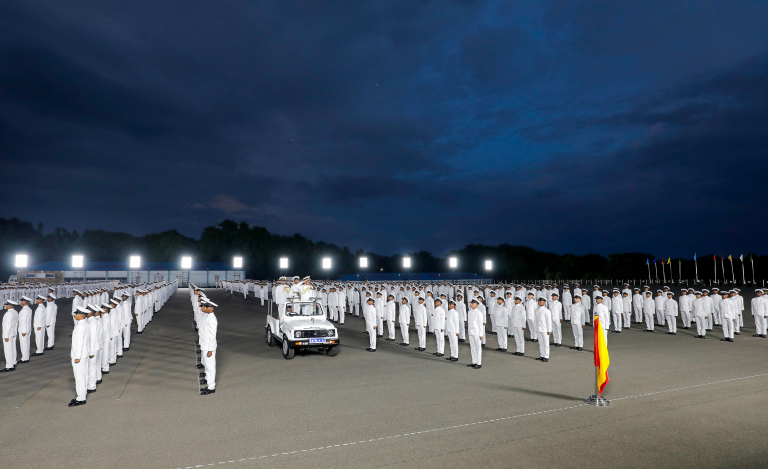Aspiring to join the prestigious Indian Navy as a Short Service Commission (SSC) Officer? The journey begins with mastering the Indian Navy SSC Officer syllabus and exam pattern for 2024. This comprehensive guide delves into the intricacies of the selection process, equipping you with the knowledge and strategies to navigate this competitive examination successfully.
Also Read | Indian Navy SSR Medical Assistant Salary Structure, Check In Hand Salary
Understanding the Indian Navy SSC Officer Exam
The Indian Navy SSC Officer exam is a rigorous and multifaceted assessment that evaluates candidates’ aptitude, knowledge, and overall suitability for the esteemed role of a naval officer. Conducted annually by the Indian Navy, this exam is renowned for its high standards and the exceptional caliber of selected candidates.
Exam Snapshot
| Particulars | Details |
|---|---|
| Conducting Organization | Indian Navy |
| Post Name | SSC Officer |
| Vacancies | 254 |
| Exam Level | National |
| Mode of Exam | Offline |
| Number of Stages | Three |
| Marking Scheme | +1 mark for correct answer, -0.25 mark for incorrect answer |
| Duration | 60 minutes |
| Type of Questions | Multiple Choice Questions |
| Official Website | joinindiannavy.gov.in |
Indian Navy SSC Officer Syllabus 2024
The Indian Navy SSC Officer exam syllabus is designed to assess a wide range of knowledge and skills, ensuring that the selected candidates possess the necessary qualifications to excel in their duties. The syllabus covers the following subject areas:
English
- Idioms and Phrases
- Sentence Arrangement
- Passage Completion
- Spotting Errors
- Fill in the blanks
- Substitution
- Active and Passive Voice
- Synonyms and Antonyms
- Prepositions
- Spelling Test
- Error Correction
- Transformation
- Joining Sentences
- Para Completion
- Sentence Improvement
Reasoning
- Analytical Reasoning
- Visual Memory
- Discrimination
- Number Series
- Space Visualization
- Coding-Decoding
- Arithmetical Reasoning
- Arithmetical Number Series
- Venn Diagrams
- Semantic Analogy
- Non-Verbal Test
- Shapes and Mirror
- Symbolic/Number Classification
- Odd Man Out
- Letter Series
- Figural Classification
- Relationship Concepts
- Similarities
- Problem Solving
- Clocks
Numerical Ability
- Average
- Time and Distance
- Percentages
- Number System
- Pipes and Cisterns
- Problems on Ages
- Problems on Trains
- Clocks and Calendars
- Ratios and Proportion
- Mixture and Alligation
- Data Interpretation
- Time and Work
- Simple & Compound Interest
- Profit and Loss
- H.C.F. and L.C.M.
- Boats and Streams
General Science
- Units and Measurements
- Laws of Motion
- Kinetic Theory
- Gravitation
- Work, Energy, and Power
- Wave Optics
- Physical World
- Thermal Properties of Matter
- Ray Optics and Optical Instruments
- Thermodynamics
- Mechanical Properties of Solids
- Semiconductor Electronics
- Motion in a Straight Line
- Nuclei
- Systems of Particles and Rotational Motion
- Electrostatic Potential and Capacitance
- Mechanical Properties of Fluids
- Moving Charges and Magnetism
- Electric Charges and Fields
- P-Block Elements Group 13 (Boron Family)
- General Principles of Metallurgy
- Surface Chemistry
- Organic Compounds Containing C, H, and O
- Stoichiometry
- D and F Block Elements & Coordination Compounds
- Solutions
- Chemical Equilibrium and Acids-Bases
- Biomolecules
- Hydrogen and its Compounds
- Electrochemistry and Chemical Kinetics
- Polymers
- Haloalkanes and Haloarenes
- Current Electricity
- Dual Nature of Radiation and Matter
- Atoms
- Magnetism and Matter
- Electromagnetic Induction
- Electromagnetic Waves
- Motion in a Plane
- Alternating Current
- P-Block Elements – Group 14 (Carbon Family)
- Classification of Elements and Periodicity in Properties
- States of Matter: Gases and Liquids
- Thermodynamics
- Environmental Chemistry
- Chemistry in Everyday Life
- Chemical Bonding and Molecular Structure
- Communication Systems
- P-Block Elements
Mathematics
- Common Factor (C.F.)
- Simplification
- Average
- Ratio & Proportion
- Discount
- Simple & Compound Interest
- Mensuration
- Percentage
- Arithmetical and Numerical Abilities
- Profit & Loss
- Common Multiple (C.M.)
- Time & Work
- Decimals
- Number Systems
- Tables & Graphs
- Time & Distance
General Knowledge
- India and Its Neighboring Countries
- World Organizations
- Sculptures
- Famous Places in India
- Artists
- Indian Culture
- International Issues
- Geography of India
- Handicrafts
- Political Science
- Countries and Capitals
- Important Dates
- Science and Innovations
- Economic Issues in India
- Books and Authors
- Music & Literature
- National News (Current)
- National Dance
- New Inventions
- Tourism Spots of Historical Importance
- Famous Places
- Musical Instruments
- Tribes
- Scientific Observations
Also Read | Indian Navy Agniveer Recruitment 2025: Check Exam Pattern, Application Process And Syllabus
Exam Pattern and Marking Scheme
The Indian Navy SSC Officer exam follows a specific pattern and marking scheme to ensure a fair and comprehensive assessment of the candidates’ abilities.
- The exam consists of multiple-choice questions (MCQs) across the subjects mentioned in the syllabus.
- The total duration of the exam is 60 minutes.
- The marking scheme awards +1 mark for each correct answer and -0.25 marks for each incorrect answer.
- Candidates are required to attempt all questions, as there is no option to leave any question unanswered.
Preparation Strategies for Indian Navy SSC Officer Exam 2024
Cracking the Indian Navy SSC Officer exam requires a well-rounded approach that combines diligent preparation, strategic planning, and a strong focus on developing both academic and non-academic skills. Here are some key preparation strategies to consider:
- Create a Structured Study Plan: Develop a comprehensive study plan that allocates time for each subject area, ensuring a balanced and efficient preparation process.
- Master the Syllabus: Thoroughly understand the depth and breadth of the Indian Navy SSC Officer syllabus, and focus on building a strong foundation in each subject area.
- Practice Extensively: Regularly engage in practice tests, mock exams, and sample questions to enhance your problem-solving skills and familiarize yourself with the exam format.
- Strengthen Cognitive Abilities: Invest time in activities that sharpen your reasoning, analytical, and numerical skills, as these are crucial for the exam.
- Enhance Communication Skills: Improve your English proficiency, including vocabulary, grammar, and written expression, to excel in the language-based sections.
- Stay Updated: Keep yourself informed about current affairs, scientific advancements, and important national and international events to excel in the General Knowledge section.
- Develop Non-Academic Skills: Focus on building physical fitness, mental resilience, and leadership qualities, as these attributes are highly valued in the Indian Navy.
- Seek Guidance and Mentorship: Leverage the expertise of experienced coaches, mentors, and successful candidates to gain valuable insights and strategies for the exam.
- Maintain a Positive Mindset: Cultivate a positive and determined mindset, as mental acuity and self-confidence are crucial for success in the Indian Navy SSC Officer exam.
Also Read | Indian Navy SSR Medical Assistant Admit Card 2024
Conclusion
The Indian Navy SSC Officer exam is a prestigious and challenging opportunity for aspiring candidates. By thoroughly understanding the syllabus, familiarizing yourself with the exam pattern, and implementing a comprehensive preparation strategy, you can maximize your chances of success and take a significant step towards realizing your dream of serving in the Indian Navy.
FAQs
1. What is the pattern of SSC exam in Indian Navy?
The exam will consist of 100 multiple-choice questions covering English, Reasoning & Numerical Ability, General Knowledge, General Science, and Mathematical Aptitude. Each section will carry 100 marks, with a penalty of one mark for each incorrect answer. (b) SSB shortlisting.
2. What are the qualifications for Indian Navy SSC Officer Recruitment 2024?
Candidates holding a BE/B.Tech degree and meeting the age criteria are eligible to apply for the Indian Navy Short Service Commission Officers Recruitment 2024 across various entries. The course is set to begin from June 2025 at the Indian Naval Academy (INA), Ezhimala, Kerala.
3. What is the salary of Navy SSC per month?
The starting salary for an Indian Navy SSC Officer will be ₹56,100, plus applicable allowances.
4. What is the selection process for SSC in Indian Navy?
The Indian Navy SSC Selection Process 2024 consists of two stages: candidates are first shortlisted based on their qualifying degree marks, followed by an SSB interview for those selected.
5. What is the training period of SSC Navy?
Officers under the Extended NOC (General Service/Executive & Hydro) will undergo 44 weeks of training, while officers under the regular NOC (all branches) will complete 22 weeks of training at the Naval Academy in Ezhimala.
